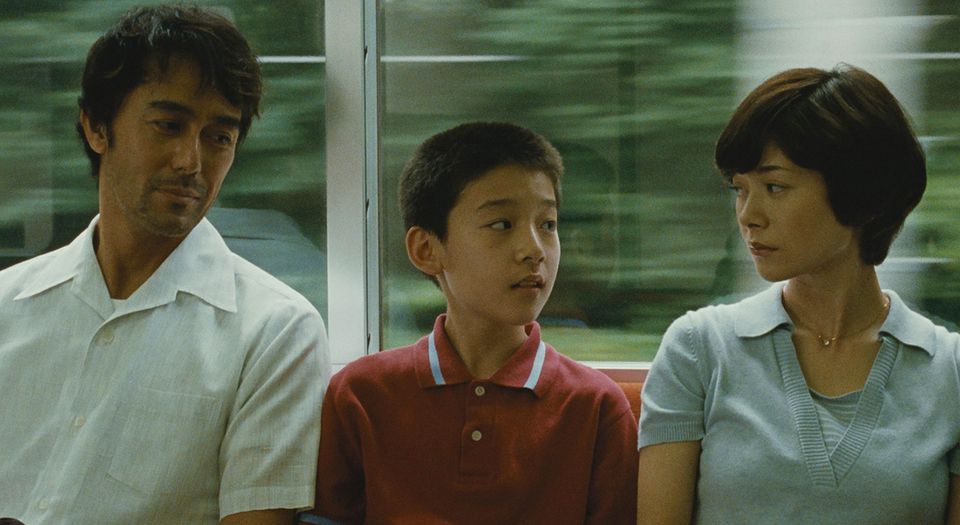After the Storm: paean to a troubled family
Hirokazu Kore-eda’s latest is an adoring portrait of imperfect people.

Want to read spiked ad-free? Become a spiked supporter.
Childhood, family, stability, and how easily they can be ripped away, are at the centre of Hirokazu Kore-eda’s work. The Japanese writer-director’s earlier films dealt with some stark, dramatic subjects: abandoned children (Nobody Knows), babies switched at birth (Like Father, Like Son), and the untimely death of a child (Still Walking).
But in the vein of the resplendent I Wish, his 2013 film about two siblings separated by their parents’ divorce, Kore-eda’s latest, After the Storm, looks at family strife in a way that is more familiar, yet no less profound.
Ryota Shinoda (Kore-eda regular Hiroshi Abe), once a promising young novelist, now works as a tawdry private detective, shaking down cheating spouses in what he claims is ‘research’ for his long-awaited second book. He blows all his wages at the race track, and owes months’ worth of child support to ex-wife Kyoko (Yōko Maki), the mother of his son Shingo (Taiyô Yoshizawa).
We first meet Ryota as he rummages through his late father’s things, looking for something to sell; he is as much the child as the parent in this delicate, intergenerational drama. Ryota’s mother, Yoshiko (Kirin Kiki), jibes at him for being a late bloomer, nodding to the trees he planted as a boy that never bore fruit. He resents his father – an unambitious, unsupportive man who left behind nothing but gambling debts – mainly, one suspects, because he fears he’s becoming him.
The story could easily feel clichéd in anyone else’s hands. Ryota’s desire to reconnect with his son and ex-wife is sparked when he sees her flash, brash new man, who buys Shingo a baseball glove and worries that the sensitive boy is spending too much time with his grandmother. The ‘sins of the father’ tropes are similarly well-worn. But the gentle, human and funny script means it never feels overdone.
The film’s climax comes in a series of one-to-one encounters, had at Yoshiko’s impossibly pokey flat, between Ryota, Kyoko, Yoshiko and Shingo, as they wait for a typhoon to pass over. It’s in the everyday details, the cooking and eating of food, the awkward conversations and stolen glances, that Kore-eda shows the family beginning to reconnect. But as the rain passes over, it remains unclear what will happen to them.
What is clear is the warmth with which Kore-eda approaches modern family life, as messy as it can be. Cut to a lilting soundtrack, and cast in glowing cinematography, drawing out the beauty of the hazy, working-class Tokyo suburb in which it’s set, After the Storm is an adoring portrait of imperfect people.
Tom Slater is deputy editor at spiked. Follow him on Twitter: @Tom_Slater_
Watch the trailer for After the Storm:
Who funds spiked? You do
We are funded by you. And in this era of cancel culture and advertiser boycotts, we rely on your donations more than ever. Seventy per cent of our revenue comes from our readers’ donations – the vast majority giving just £5 per month. If you make a regular donation – of £5 a month or £50 a year – you can become a and enjoy:
–Ad-free reading
–Exclusive events
–Access to our comments section
It’s the best way to keep spiked going – and growing. Thank you!









Comments
Want to join the conversation?
Only spiked supporters and patrons, who donate regularly to us, can comment on our articles.